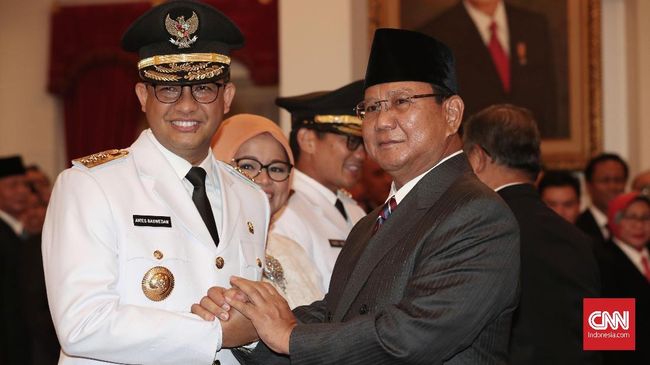A number of political parties have signaled their support for the presidential candidates for the presidency 2024 presidential election. Several prospective presidential candidates are survey champions, ranging from Prabowo Subianto to Anies Baswedan got that support.
Until now, the Golkar Party and the Gerindra Party have almost certainly appointed their general chairman as presidential candidates. Meanwhile, the new Nasdem Party will make a decision on 17 June.
Golkar Supports Airlangga
The Golkar Party became the first political party to do so. Through the National Conference (Munas) in Jakarta in 2019, Golkar asked their general chairman – Airlangga Hartarto – to run in 2024.
“If the voters have agreed, they want the general chairman to be a presidential candidate, maybe that’s a mandate, a mandate that must be carried out by Pak Airlangga,” said Secretary General of the Golkar Party Lodewijk F. Paulus at the Golkar National Conference location in Jakarta, December 4, 2019.
Airlangga’s name circulated in the middle of various presidential candidate surveys. The electability of the Coordinating Minister for Economic Affairs is around 1 percent.
Golkar must also form a coalition to carry Airlangga in 2024. This is because the presidential nomination threshold is at least 20 percent of the seats in the DPR RI or 25 percent of the valid national votes in the previous election.
Golkar’s vote gain in the 2019 election was 12.31 percent. Then, the Golkar Party Faction has 85 seats or the equivalent of 14.78 percent in the DPR RI.
Golkar has explored a coalition with the NasDem Party when Airlangga met Surya Paloh on Kali Age Island, Thousand Islands, February 14, 2021. However, there has been no official coalition between the two parties.
Gerindra Asks Prabowo to Run Again
Gerindra Party cadres began to push Prabowo Subianto to become a presidential candidate again. One by one the regional leadership council (DPD) of Gerindra made a declaration.
“There have been around 12 provinces that have stated that they asked Pak Prabowo to run as a presidential candidate for the Gerindra Party. West Java is the 12th,” said Gerindra Party DPP Daily Chair Sufmi Dasco Ahmad via video October 22, 2021.
However, the Central Executive Board of the Gerindra Party has yet to make a decision. Prabowo has yet to declare himself running in 2024. Dasco said his party will hold a special meeting this year. They will decide whether Prabowo will run for president again in 2024.
In terms of electability, Prabowo still dominates a number of surveys. Prabowo’s electability is around 20 percent. He is almost always in the top three favorite presidential candidates along with Ganjar Pranowo and Anies Baswedan.
The Gerindra Party needs a coalition with other parties if it wants to carry Prabowo. They have 78 seats or the equivalent of 13.57 percent of the seats in the DPR. Gerindra’s vote acquisition in the 2019 election was equivalent to 12.57 percent of the national vote.
NasDem Regional Cadre Support for Anies
The NasDem party plans to cut support for the presidential candidate on June 17. However, a number of NasDem cadres in the regions have expressed support.
The NasDem DKI Jakarta-Banten Regional Leadership Council (DPW) affirmed its support for DKI Jakarta Governor Anies Baswedan. The DPW of NasDem Aceh, West Java, and Yogyakarta made the same statement.
“Of the many DPD, that’s the majority, generally asking Pak Anies to be considered for proposals in the National Working Meeting to the general chairman,” said West Java NasDem DPW Chairman Saan Mustopa via short message to CNNIndonesia.com, Wednesday (4/5).
Anies almost always placed at the top of the survey with Ganjar Pranowo and Prabowo Subianto. He has an electability that ranges in the tens of percent.
The former Minister of Education and Culture also has close ties to NasDem. Anies is one of the declarators of the National Democrats, the forerunner of the NasDem Party.
Meanwhile, NasDem has a capital of 59 seats or the equivalent of 10.26 percent of the DPR seats. Their vote acquisition in the 2019 election was equivalent to 9.05 percent of the national vote.
(dhf / DAL)
–


